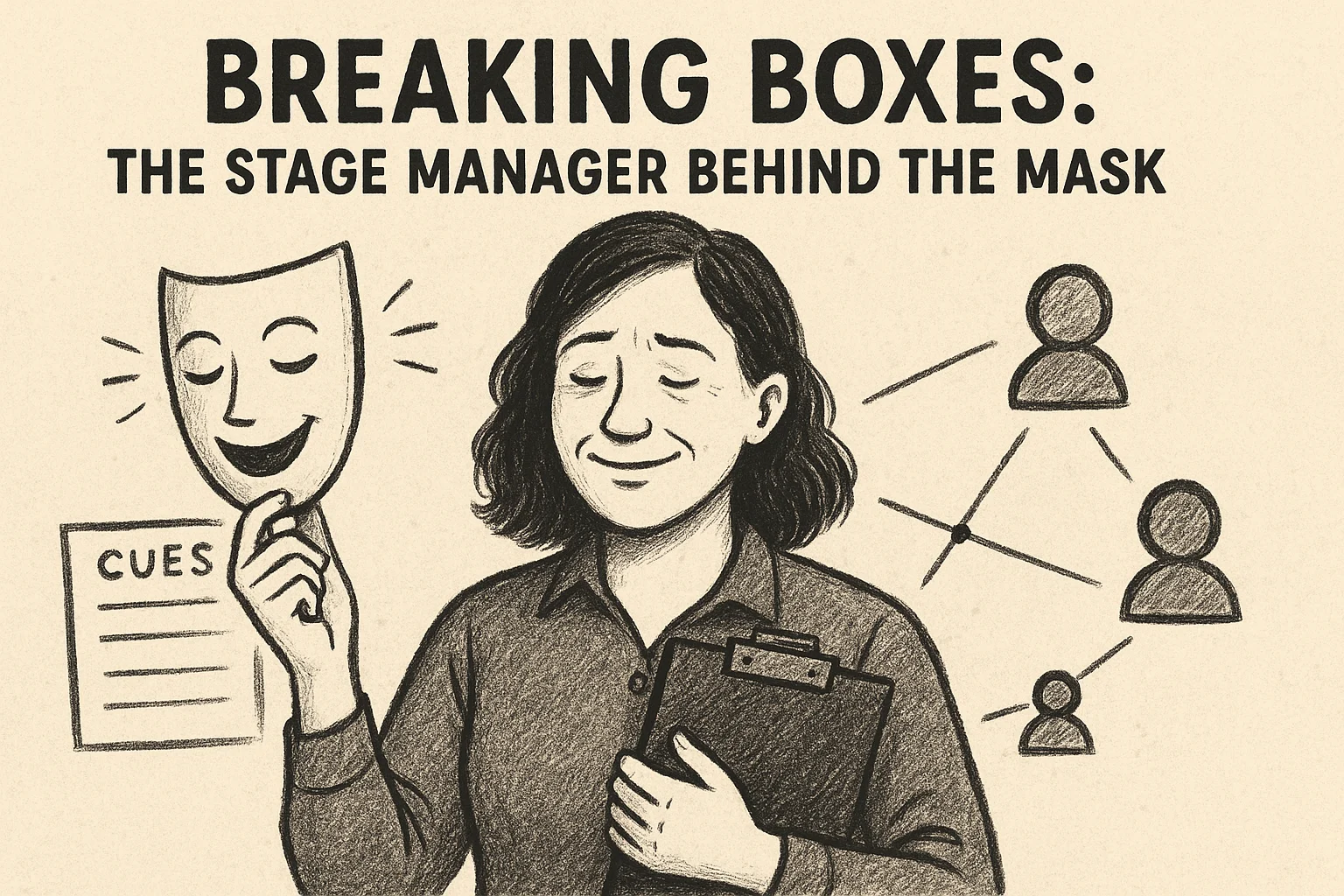What if the key to better stage management isn’t doing more — but showing more of yourself?
In Episode 20 of Backstage Banter, Liza Marie Hackman joins Jay and Bryan from Playa del Carmen to unpack the invisible pressures stage managers carry: the pressure to be composed, to be in charge, and to separate “the real you” from “the professional you.” What unfolds is an honest, funny, and deeply human conversation about authentic stage management leadership, identity, and what it takes to be fully present backstage.
Leading with Vulnerability: The Strength You Weren’t Taught
Liza shares what happened when she stopped pretending to be the “flawless” leader and started asking for help. That shift made her team more engaged, more collaborative, and more connected.
- Stage managers often feel pressure to perform strength rather than build trust.
- Admitting what you don’t know can open doors to stronger team dynamics.
- Transparency invites others to lead alongside you—not just follow behind.
Redefining Roles: From Silos to Shared Ownership
Liza inherited a rigid, task-based role structure that didn’t reflect the reality of collaborative work. So she’s rewriting it to prioritize flexibility and teamwork.
- “The ASM always does X” mindset leads to burnout and isolation.
- Collaborative role design encourages adaptability and shared problem-solving.
- Good leadership isn’t about following rules — it’s about designing systems that reflect how people actually work.
Reuniting the Persona and the Person
Jay and Liza explore how stage managers often create a split identity: the calm professional and the private human. The real growth happens when those identities merge.
- Performing a leadership role can create distance instead of connection.
- Unified presence—being both professional and personal—deepens empathy and trust.
- Letting go of the “persona” opens space for real leadership and team resonance.
Key Takeaways
- Vulnerability is a leadership strength, not a flaw.
- Breaking out of rigid job definitions creates stronger, more flexible teams.
- The most powerful leadership is human, not perfect.
- You don’t have to choose between professionalism and authenticity.
- Real connection fuels collaboration—and trust starts with you.
